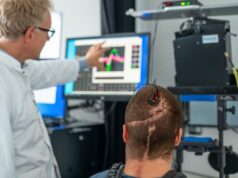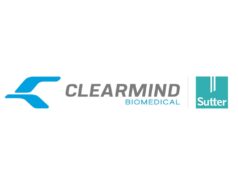
Brian Nahed (Boston, USA) outlines the latest advances in neurosurgery, and why it is important for those working in the field to keep up to date and continually hone their skills, in a guest article on NeuroNews.
Training and education are the foundation of progress in every area of science; even more so in surgical specialties, in which the craftsmanship component is implied.1 Experiencing an exponential rate of expansion within neurosurgery is what makes the specialty both challenging and fulfilling.
a
Neurosurgery training: successes and challenges
Neurosurgery training is typically structured around an expert-apprentice approach. Trainees perform different surgeries several times throughout a seven-year residency programme.1 Today, the field is moving towards not only qualifying residents to become neurosurgeons, but also quantifying the experience, ensuring they can perform surgery safely and effectively as future leaders.
Programmes nationwide in the USA have focused on holistic neurological surgery training—which includes developing the best surgical skills while also providing leadership training, mentoring and coaching so that neurosurgeons can play a large role both inside and outside the operating room.
Residents receive an immense amount of support and encouragement around their research and academic interests, especially when it comes to improving surgical techniques and better understanding the disease pathology neurosurgeons are likely to see every day.
In this specialty, technology and techniques are constantly evolving. Current and future neurosurgeons are challenged to stay on top of the latest advancements while keeping a broad representation of surgical skills.
Hot topics in brain tumours
According to the National Brain Tumor Society (NBTS), an estimated 94,390 people will have received a new primary brain tumour diagnosis in 2023.2 While an estimated 71% of discovered tumours in 2023 will be considered benign, approximately 29% will be found to be malignant. Transformation around a diagnosis that impacts such a sizeable portion of our population is crucial.
Recent immunotherapy and surgical technology advances have allowed for safer and more effective outcomes in the treatment of brain tumours. Traditionally, neurosurgery had focused on treating neurological issues using invasive techniques. Today, neurosurgeons are using minimally invasive and even some non-surgical approaches to treat neurological diseases. In functional neurosurgery, surgeons have found innovative methods to modulate or add functionality as well.
Vascular neurosurgery has made significant advances with the development of minimally invasive endovascular techniques to treat very difficult vascular lesions. Patients are now often sent home the same day after a procedure, and with great outcomes. With continuing advances and innovations, conditions that were once difficult to treat surgically can be treated endovascularly with lower morbidity rates.
The field of liquid biopsy has grown significantly in the detection of cancers. Neurosurgeons have led the development of liquid biopsies using blood or cerebrospinal fluid so that they can diagnose brain tumours and potentially identify recurrence of tumours, and help guide immunotherapy to provide real-time treatment based upon a patient’s tumour and specific mutations.
With the rapid advancements currently happening in neurosurgery, it will be critical for surgeons to continue to improve their skillset and awareness around the latest news to help ensure their ability to provide patients with the safest, and most effective, treatment options.
References:
- Bongetta D, Zoia C. Editorial: Training and education in neurosurgery: Challenges and strategies for the next ten years. Front Surg. 2022; 9: 984208.
- Porter K R, McCarthy B J, Freels S et al. Prevalence Estimates for Primary Brain Tumors in the United States by Age, Gender, Behavior, and Histology. Neuro Oncol. 2010; 12(6): 520–7.
Brian Nahed is a neurosurgeon and director of the neurosurgery residency programme at Massachusetts General Hospital in Boston, USA. He specialises in brain tumours, brain mapping and intraoperative imaging.
The author declared no relevant disclosures.










